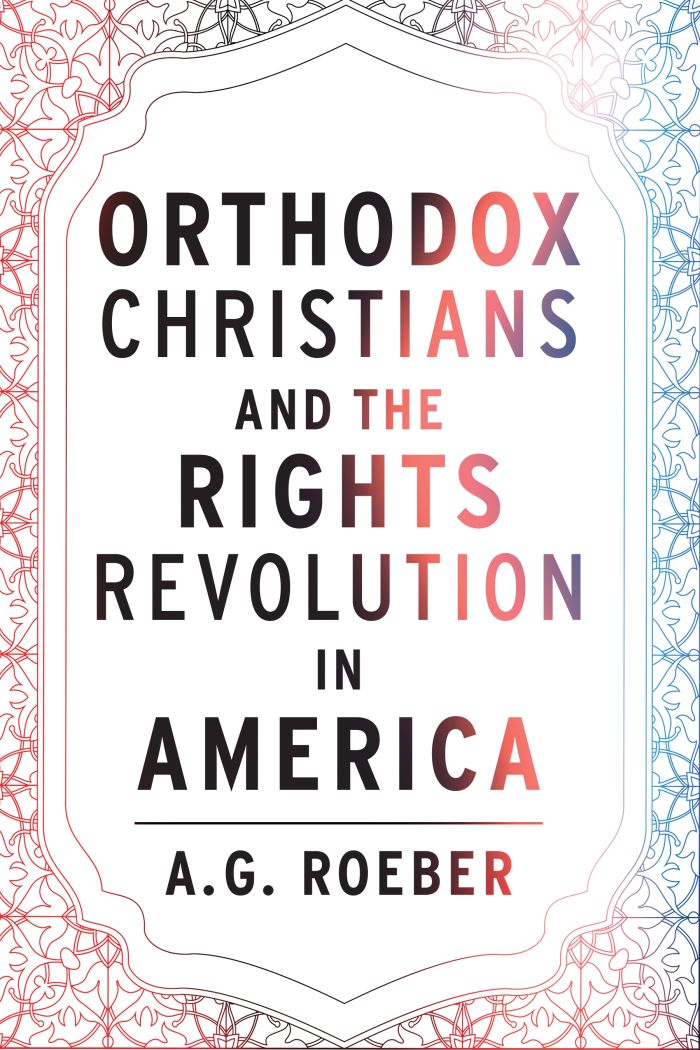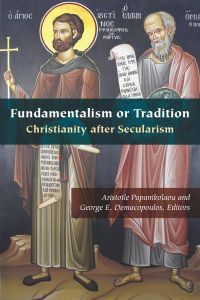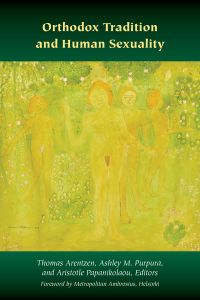Orthodox Christians and the Rights Revolution in America

This book can be opened with

A distinctive and unrivaled examination of North American Eastern Orthodox Christians and their encounter with the rights revolution in a pluralistic American society.
From the civil rights movement of the 1950s to the “culture wars” of North America, commentators have identified the partisans bent on pursuing different “rights” claims. When religious identity surfaces as a key determinant in how the pursuit of rights occurs, both “the religious right” and “liberal” believers remain the focus of how each contributes to making rights demands. How Orthodox Christians in North America have navigated the “rights revolution,” however, remains largely unknown. From the disagreements over the rights of the First Peoples of Alaska to arguments about the rights of transgender persons, Orthodox Christians have engaged an anglo-American legal and constitutional rights tradition. But they see rights claims through the lens of an inherited focus on the dignity of the human person.
In a pluralistic society and culture, Orthodox Christians, both converts and those with family roots in Orthodox countries, share with non-Orthodox fellow citizens the challenge of reconciling conflicting rights claims. Those claims do pit “religious liberty” rights claims against perceived dangers from outside the Orthodox Church. But internal disagreements about the rights of clergy and people within the Church accompany the Orthodox Christian engagement with debates over gender, sex, and marriage as well as expanding political, legal, and human rights claims. Despite their small numbers, North American Orthodox remain highly visible and their struggles influential among the more than 280 million Orthodox worldwide. Orthodox Christians and the Rights Revolution in America offers an historical analysis of this unfolding story.
What happens when convictions about "rights" developed from within the traditions of Orthodox Christianity confront the modern "rights revolution" that is dominated by secular reasoning? A.G. Roeber's deeply researched and carefully argued book provides answers that focus on the growing participation of the Orthodox in American social and political debates. One of the book's many contributions, however, is to extend its discussion to consider the clash of Orthodox opinions (Russian versus Ukrainian and the Orthodox Church of the USA) on the Russian invasion of Ukraine. For anyone interested in connections between religious thought and contemporary debates over "rights," this book is a treasure.—Mark A. Noll, McAnaney Professor of History Emeritus, University of Notre Dame
Finally, the English-speaking world has an erudite and engaging treatment of the oft vexed interactions of Orthodox Christianity and human rights, particularly in the United States. A.G. Roeber combines insider theological lore with refined legal and historical knowledge to show how the Orthodox faithful have gradually come to see the utility if not value of some modern human rights norms of human dignity, moral agency, social order, and religious freedom. But he also shows how and why the Orthodox faithful remain deeply suspicious of modern liberalism and its founding secular premises. This is now the standard text on Orthodoxy and human rights for insiders and outsiders alike.—John Witte, Jr., Center for the Study of Law and Religion, Emory University
Orthodoxy did not bring with it to America a doctrine of human rights. With impressive erudition Roeber shows why it is incumbent upon Orthodoxy to come to terms with human rights speech, whether yea or nay. This is because many of the most significant religious and moral issues of the day entail human rights language and reasoning; whether marriage, sexuality and gender, free speech and religious liberty, or nationalism and the sovereignty of the nation state. There is no other book like this in the corpus of Orthodox reflection on the station of the Church in America.—Vigen Guroian, author of The Orthodox Reality, and The Melody of Faith: Theology in an Orthodox Key
A.G. Roeber's Orthodox Christians and the Rights Revolution in America is an indispensable study of the engagement with and contributions of Orthodox Christianity to the complex, contested evolution in rights regimes in the United States. He offers an erudite narration of the history of Orthodox Christians as a faith community in America whose navigation of the country's rights regimes has been shaped by two main factors--first, Orthodox Christians' connectedness to their transnational, macro-historical experiences and, second, American rights debates that continue to be marked by competing claims about the origins, scope, and arbiters of rights in an ever more religiously plural United States. This case study of Orthodox Christianity in America's rights revolution is essential reading for broader understandings of how religious communities assess involvement in questions about social and political rights in terms of the possible transformative consequences both inside and outside faith communities.—Elizabeth H. Prodromou, Visiting Professor in International Studies at Boston College
. . .Orthodox Christians and the Rights Revolution in America synthesizes the history of Orthodox Christians in North America and their engagement with religious liberty, property rights, and freedom of expression in a succinct and detailed way.—Reading Religion
This remarkable book examines how the Orthodox Christians in America have encountered and reacted to the unfolding movement toward the realization of rights and its attendant language. . . [T]his magisterial in-depth study should be read carefully by all within the American Orthodox churches and all those interested in the issue of religion and rights in America.—Church History
. . .[A] pioneering approach to a controversial topic: the relationship between Orthodox Christianity and human rights.—Journal of Orthodox Christian Studies
Prologue: A Rights Primer | 1
Introduction | 21
1 Deferential Society and Church? Protestant to Orthodox Social Ethos | 34
2 The Nineteenth-Century Orthodox Confrontation with Rights | 67
3 Pluralism and the Rights of Freedom of Speech and Expression | 89
4 Rights of and for a Self-Governed American Orthodox Church | 116
5 “Greek” North American Orthodox Rights | 146
6 The Orthodox, Sex, and Marriage before the Rights Revolution | 173
7 The Orthodox, Gender, and Sexuality and the Rights Revolution | 205
8 Human Rights Claims and the Orthodox in America | 239
Conclusion | 287
Bibliography | 313
Index | 357




